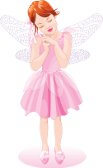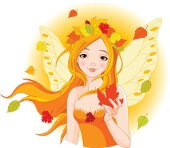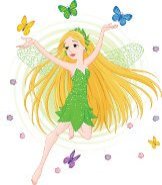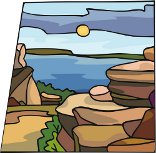What are synonyms and antonyms?
Pretty, beautiful, handsome... What's the difference?
Why are synonyms and antonyms important?
How to use synonyms and antonyms to improve vocabulary?
How to use synonyms and antonyms to improve writing skills?
In this article we are going to answer these questions.
Synonyms
A synonym is a word or expression that has the same or almost the same meaning as another.
Synonym examples:
- awful / terrible
- big / large
- smart / clever
- photograph / picture
Word origin: Greek, syn = same, onyma = a name
Short list of synonyms in English, listed by the part of speech
Nouns
- belly / stomach
- children / kids
- disaster / catastrophe
- earth / soil
- father / dad
- happiness / joy
- instinct / intuition
- mother / mom
- present / gift
- sunrise / dawn
Verbs
- answer / reply
- beat / defeat
- behave / act
- begin / start
- close / shut
- leave / exit
- provide / supply
- select / choose
- shout / yell
- speak / talk
Adjectives
- big / large
- complete / total
- correct / right
- crazy / mad
- foolish / silly
- happy / glad
- hard / difficult
- ill / sick
- last / final
- near / close
- sad / unhappy
- stable / steady
Adverbs
- abroad / overseas
- almost / nearly
- badly / poorly
- fast / quickly
- intentionally / on purpose
- out / outside
- rarely / seldom
- sometimes / occasionally
- surely / for sure
- very / highly / extremely
Prepositions
- above / over
- about / regarding / concerning
- against / versus
- below / beneath / under
- by / via
- despite / in spite of
- in / into
- off / away
- until / till
- with / including
Conjunctions
- and / plus
- because / since
- but / yet
- if / provided
- once / as soon as
Interjections
- hello / hi
- gee / gosh
- goodness / goodness me / my goodness
- no / nope
- oh Lord / good Lord
- thanks / thank you
- whoopee / yahoo / hooray
- yes / yeah
Synonyms are not necessarily the same!
You see, they can be very similar, but they do not necessarily mean the same.
Here is a common example.
the following words are all synonyms. Their general meaning is "pleasant to look at."
There are however important nuances.
Look at the illustrations, read the definitions and see for yourself.
Pretty, beautiful, handsome... What's the difference?
| Pretty | Beautiful | Handsome |
 |
 |
 |
| Pretty = delicate and pleasant to look at. |
Beautiful = (of a woman or girl) extremely pleasant to look at. |
Handsome = (of a man) pleasant to look at. |
| Lovely | Ravishing | Good-looking |
 |
 |
 |
| Lovely = (of someone that makes you have a strong feeling for them) graceful and very pleasant to look at. |
Ravishing = very beautiful. |
Good-looking = physically pleasant to look at. |
| Cute | Adorable | Gorgeous |
 |
 |
 |
| Cute = (of someone young or something small) charming and pleasant to look at. |
Adorable = very pleasant to look at and very easy to love. |
Gorgeous = impressive and extremely pleasant to look at. |
Here is another example to illustrate this point:
"To ask" means to say or write what you wish to happen.
"To request" means to say or write what you wish to happen, but it has a formal use.
In other words, you would use "ask" and "request" in different situations and contexts.
So it's not enough just to study a word's meaning and synonyms. You should also be aware of the subtle difference, nuances, and usage issues of each individual word.
Additional example:
One of the meanings of "hurt" is to "to be painful."
For example, "My back hurts like hell."
One synonym of "hurt" is "ache."
"To ache" means "to be painful, in a dull way." A dull pain means that it is not very strong, but it is continuous.
For example, "I've been standing for so long that now my feet ache."
So you see, "hurt" and "ache" are synonyms. Their meanings are indeed very similar, but not identical.
Antonyms
An antonym is a word that means the opposite of another word.
Antonym examples:
- old / new
- black / white
- strong / weak
- break / fix
Word origin: Greek, anti = opposite, onym = name
Short list of antonyms in English, listed by the part of speech
Nouns
- day / night
- east / west
- enemy / friend
- failure / success
- guest / host
- health / disease
- question / answer
- speaker / listener
- summer / winter
- top / bottom
Verbs
- agree / disagree
- arrive / leave
- begin / end
- fall asleep / wake up
- find / lose
- lend / borrow
- love / hate
- open / close
- remember / forget
- start / stop
Adjectives
- asleep / awake
- beautiful / ugly
- big / small
- black / white
- cheap / expensive
- dead / alive
- dry / wet
- easy / difficult
- full / empty
- good / bad
- hot / cold
- intelligent / stupid
- sad / happy
- sick / healthy
- thin / fat
Adverbs
- always / never
- angrily / happily
- fast / slowly
- here / there
- inside / outside
- likely / unlikely
- near / far
- partly / fully
- seemingly / actually
- yesterday / tomorrow
Prepositions
- above / below
- against / for
- before / after
- in / out
- like / unlike
- on / off
- plus / minus
- to / from
- towards / away
- with / without
Conjunctions
- and / or
- therefore / nevertheless
Interjections
- bravo / boo
- hello / goodbye
- holy cow / duh
- phew / oops
- thanks / no thanks
- yes / no
- yippee / oh my
Why are synonyms and antonyms important?
Knowing synonyms and antonyms can help you express yourself better – more CLEARLY.
If you know different words that describe the same thing (but in a slightly different way, or from a different angle), you can chose the best word (synonym) to use.
That way, you are able to deliver the exact message you intend to communicate.
Knowing synonyms and antonyms can help you express yourself better – with more VARIETY and more COLORFULLY. (Here "colorful" means "interesting or exciting.")
Repeating the same words tends to get monotonous. It doesn't sound good in natural speech, and even more so in artistic writing (poetry, prose). Using synonyms makes your speech or writing richer and more "colorful."
Using antonyms helps to emphasize your point, show contrast, or explain exactly what you mean. Antonyms too add "colors" to your speech or writing.
For example, compare these two paragraphs:
"The girl looked out the window. While looking out the window, the girl noticed a little kitty. The kitty she noticed was not fat. It was very much not fat."
"The girl looked out the window. While glancing outside, she noticed a little kitty. The kitten she saw was not fat. It was skinny, and not chubby at all."
In addition, You can really get full understanding of an area if you learn the different synonyms that apply to it, and their nuances.
For example, cost, charge, and fee, are all used to describe money that you pay for something:
Cost = the amount of money that you need to buy, make or do something. (How much is spent by the buyer.)
- The total cost was $100.
- You can get a new roof at the cost of $850.
- They protest against the high cost of living.
Charge = an amount of money that is asked in return for goods or services. (How much is requested by the seller/provider.)
- There is a monthly charge of $7 for using the phone.
- There is an admission charge at the circus.
- The shipment will be free of charge.
Fee = an amount of money that you have to pay for professional advice or services (the officially set price).
- The college has a fee for the services that it provides.
- These fees do not cover accommodation or meals.
- My insurance covers the doctor's fee.
As you can see, cost, charge and fee have similar meanings, but there are slight differences present. They can be used slightly differently.
These words have different uses as verbs, too:
- How much does it cost? (not: How much does it charge?)
- How much do you charge for fixing the roof? (not: How much do you cost for fixing the roof?)
How to use synonyms and antonyms to improve vocabulary?
Synonyms and antonyms can help remember the words you are trying to learn.
For example, let's say you are trying to learn the word bash. "Bash" is an informal word which means "a large or exciting event, with food, drinks, dancing, etc." For example, "Get ready for the biggest birthday bash ever!"
Once you've understood the meaning of the word "bash," you'll find it helpful to know its synonym is "party."
(Note that it doesn't work the other way around. Trying to explain a "bash" by just saying it's a "party" is not very accurate.)
In many cases dictionaries list the word's synonyms after certain definitions or inside usage notes. There are also special dictionaries for synonyms. They are called thesauruses. A thesaurus is a book in which words with the same or similar meanings are grouped together.
There are also online thesauruses you can take advantage of:
Macmillan Dictionary and Thesaurus: Free English Dictionary Online
Merriam-Webster – Free Online Dictionary, Thesaurus and More
A word of caution: thesauruses also list many rare/not-so-much-in-use words. So use your judgment when working with them.
How to use synonyms and antonyms to improve writing skills?
Knowing many different synonyms and antonyms can help you diversify your writing.
The trick is knowing to choose the right word, and you can't pick the right word unless you actually know it. So you need to be familiar with many words, and know how and when to use each.
This is best achieved by reading, reading, reading, and then some more reading.
There are, however, writing exercises you can do to help.
An example for a writing exercise with synonyms
Let's say you would like to increase your active vocabulary of linking words that add information, such as "moreover."
(Active vocabulary is the words you know and actually use.)
So here is an exercise to help with that.
1. First, using a dictionary or thesaurus (or several of them), make a list of synonyms to the word "moreover."
Here is such a list:
Moreover, additionally, in addition, further, furthermore, likewise, besides, then, yet, what is more, too, also, as well, to boot.
2. Look up each word in the dictionary.
Make sure you understand the definitions.
Go over the example sentences. It's important to see how each word/phrase is actually used.
Also note the following points:
- The possible locations of each word/phrase in the sentence (beginning, middle, end).
- How punctuation is used next to it.
- At which occasions each word/phrase is used: formal, informal, slang, etc.
3. Write several sentences with each synonym.
Here is an example to this:
Moreover (formal)
- The solution offered was long and complicated. Moreover, it seemed ineffective at the time.
- She is a beautiful woman and, moreover, a talented actress.
Additionally
- The factory had to fire 20% of its workers. Additionally, the management had to reduce manufacturing costs by 40%.
In addition
- There is, in addition, one more problem.
- In addition to these files, I want you to look into those over there.
- They won the race, and in addition made a new record.
Further
- We had no pet. We realized, further, that we can't afford any.
- He lost his ticket. Further, he didn't have his ID with him.
- I would need further information on this.
Furthermore
- She lied about her occupation. Furthermore, she lied about her true age.
- The baby brought joy into their life. Taking care of him, furthermore, has made them stronger.
Likewise (formal)
- The first week was very hard. The second week was likewise difficult.
- The people wanted to stop the fighting. Likewise, the government needed to put an end to it.
Besides
- We had many problems besides the mortgage.
- Besides selling pastries, this bakery also offers a wide selection of drinks.
Then
- I've been very tired lately and then there was the wedding to arrange.
- Judy and Tracy want to come, and then there is Lisa and her boys, so we need another car.
Yet
- You came late yet another time. I think we need to talk.
- My boss fired yet another worker. That's the fourth one this month!
What is more
- She lost the case, and what's more she tried to hide it!
- The show was simply wonderful and what's more, he organized it herself.
Too (common in spoken English)
- Can I see it too?
- Clean your room, and you should open the windows, too.
Also (more formal than "as well" and "too")
- Jim is a great singer. He also plays the piano.
- I hated that movie. Also, it was too crowded inside.
- There weren't a lot of students today. It was also very hot.
As well (in American English sounds formal)
- Will he be there as well?
- We make boots as well as belts.
To boot (humorous or old-fashioned)
- She wore a red dress and red high heel shoes to boot.
- Their son can't have grains, and he can't drink milk to boot.
- That dish looks bad, and it tastes awful, to boot.
This ends our review of synonyms and antonyms in English.

